How Jeremy Clarkson’s Hawkstone beer is going global
Selling beer suits Jeremy Clarkson. The star of Clarkson’s Farm on Amazon Prime Video and columnist for The Sunday Times part-owns, and is a director of, the Cotswold brewer that makes his Hawkstone lager.
“It is a fun business,” he says. “When you normally have lunch with people they are often very po-faced and say, ‘I’ll just have water’. At least when you go out with people involved with brewing and pubs they have a pint and then usually another one, and I enjoy that a lot.”
Clarkson added brewing to his portfolio in 2021 when he teamed up with a family-owned brewer called The Cotswold Brewing Company to launch Hawkstone, using barley grown on his 1,000-acre Diddly Squat farm ten miles away and his media profile to market it.
• Explore the full list of companies on this year’s Sunday Times 100 — plus interviews, company profiles and more
The brewery was set up by Richard and Emma Keene in 2004 and in 2021 they sold a significant minority stake to the entrepreneur Johnny Hornby, the founder of the marketing agency The&Partnership, and Clarkson. The pair have since increased their investment, with Emma Keene selling her shares following the transition to the Hawkstone brand.
Clarkson’s fellow directors and shareholders include the chairman Hugh van Cutsem, a family friend of Prince William and Prince Harry who helped Clarkson to hunt deer in the third series of Clarkson’s Farm. Since then sales have rocketed, hitting £7.8 million in the year to March and earning Hawkstone the mantle of Britain’s fastest-growing privately owned brewery.
Contrary to recent reports, Richard Keene remains a significant shareholder and retains a vital role in the business, Hornby says. “He continues to have a role overseeing beer quality and special brews,” he says. “But after 20 years of hard graft Emma is going to move on to other things.”
Unaware that Hawkstone is now served at about 500 pubs across the country, I mention that I saw it on tap at the Swan Inn in the village of Swinbrook, west Oxfordshire. “We want to go a bit further afield than Swinbrook. We are in Oddington, Charlbury. In fact we have carpet-bombed this whole area,” Clarkson says. “I love Cotswold beer; I’ve lived here a long time. But instead of it being available in 20 pubs in this area, it is going to be available in 200,000 pubs, stretching all the way from the Pacific Northwest to Brisbane. That is my plan.” It might sound like hyperbole but last week Elon Musk took a sip on a yacht while in France. “As beer goes, it tastes great,” was the verdict.
Owen Jenkins is Hawkstone’s managing director, of nine months’ standing, and laughs as Clarkson reveals his ambition for global domination. Is 200,000 pubs Jenkins’s official target? “It is. He knows it is,” Clarkson says. Jenkins parries: “My targets change all the time.” Cue more chortling, their mood helped by having tasted a new 4 per cent, flavoured cider that morning. “It’s got blackberries and blackcurrants in it, as well as apples,” Clarkson says. “It is exactly what you would expect to drink if you are fine with a children’s party. You just go, ‘That’s the taste of my childhood, but with a buzz that I didn’t get from the Ribena I was drinking when I was five.’”
His original name for the lager was Lager McLagerface, until he was steered away from that thought. “In my mind we were going to be … high-volume, low-cost beer,” he explains. When he found out more about the costs involved in brewing, the price was such that the lager would have to be set at the premium end of the market. “I thought Lager McLagerface was a great name until somebody pointed out, ‘You do realise it will be priced at the same point as the premium ones.’” Instead it is named after a neolithic standing stone located close to Diddly Squat.
• Jeremy Clarkson sets sights on Cotswolds pub near Diddly Squat
Jenkins was previously national accounts director at FTSE 250 listed C&C Group, home to Magners cider and Tennent’s lager among others. Asked why he made the leap to a small craft brewer, Clarkson interrupts: “We held his children hostage.” “I’m allowed them back in three months,” Jenkins jokes, before trying to be more serious: “It is one of those opportunities that you don’t get often in your career. What we are really thinking about is becoming the premium British lager. I don’t think there is any real premium British lager out there at the moment.”
After a career in TV, Clarkson now has interests in farming, brewing and even horse racing, but he still doesn’t see himself as a good businessman. “Farming and the pub trade … I think I’m going into cinemas next. I don’t think you can find more difficult businesses than those three at the moment,” he quips. “I don’t understand anything about the [brewing] business. I don’t know what ebit means [earnings before interest and taxes] and I don’t want to know. But I do enjoy the simplistic nature of growing the barley and putting it into the beer and then drinking the beer.”
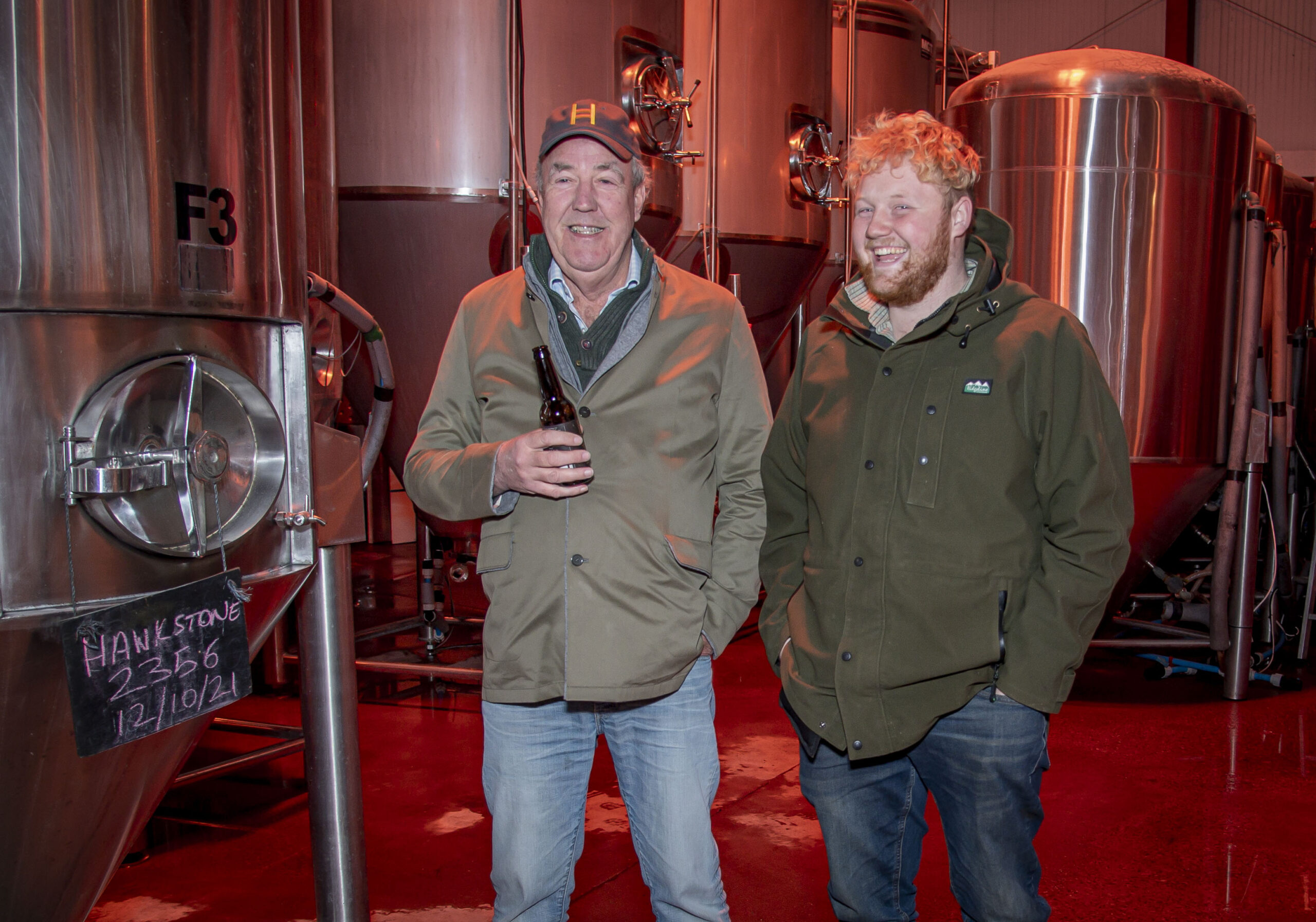
Clarkson is Hawkstone’s chief publicist, and a very effective one at that. “Ultimately it is just a really good lager. That is why it sells. People taste it and go, ‘That’s really nice and we are helping British farming by drinking it.’ Where is the downside, apart from it being a bit more expensive than Carling?” The brewery has launched a range of new lagers, including one with only 0.3 per cent alcohol content, called Spa Lager. Clarkson memorably described it in one post on social media as “a wellness lager”. “I genuinely love Spa. I know Lucky Saint is good, but we are at least as good as they are.”
Clarkson’s co-star in the Amazon series, Kaleb Cooper, lent his name to a Hawkstone Cider that launched in April 2022. It suffered a setback in July last year when a batch that was overfermented and prone to explode had to be recalled. Clarkson handled it well, Hornby says. “There is an old adage that says there is no such thing as bad PR: cider sales have gone up fourfold.”
Clarkson adds: “It was a hell of a thing to go through, but I think our refreshing honesty went down well with customers. I put my hands up and said, ‘We have completely cocked up here’, and sales, as Johnny said, went up. But we won’t be doing it again as a long-term strategy.”
Instead, buying pubs might be a next step. “We are looking,” Clarkson says. “There’s no shortage of options, I can tell you that. There is a worryingly large amount of pubs for sale, and even the ones that aren’t, owners will literally bite your arm off when you walk in and ask if they might be.”
In the third series of Clarkson’s Farm, the harvest is poor, with the barley crop destined for the brewery falling below the quality standard required. But even annoying rain clouds have a silver lining, Clarkson insists. “It is good news for other farmers really: we’re buying barley from them because our barley harvest was shocking,” he says. “The one farm in Britain that doesn’t need any help really is Diddly Squat, as it is obviously funded through other means. So it is lovely to think we can build up a brand that isn’t using Italian barley, or German barley or Spanish barley; where farmers can benefit from selling their stuff to us.”
• Jeremy Clarkson on his farm: ‘Everything has gone wrong’
As Hawkstone expands, it plans to source from UK growers more widely. “We’d love to talk to anyone who is growing hops in this country. If we could get hops that are suitable, it would be absolutely brilliant,” Clarkson says.
Having recently signed up to lead a syndicate of local investors in a grey four-year-old racehorse named Hawkstonian, farmer Clarkson is looking to breed cattle again on Diddly Squat. “I have just bought an Aberdeen Angus bull, which is far more exciting than a horse and has considerably larger testicles,” he says. “He is only a baby at the moment but he will be one and a half tonnes. Bigger than a hippo. I have met his brothers and they are gigantic.”
With trenchant views on how the government should do more to support farmers, Clarkson is less familiar with the levers that could make life a little easier for brewers. Jenkins steps in: “I haven’t seen any responses regarding duty or anything like that [from the political parties]. We want to grow this business quickly. We are in 500 pubs at the moment and we want to have grown that number significantly in the next two to three years, as well as into groceries and also expanding internationally. We’d be hugely enthusiastic about anything that can support the business on its growth journey, whether that’s through relaxing regulations or making it easier to trade.”
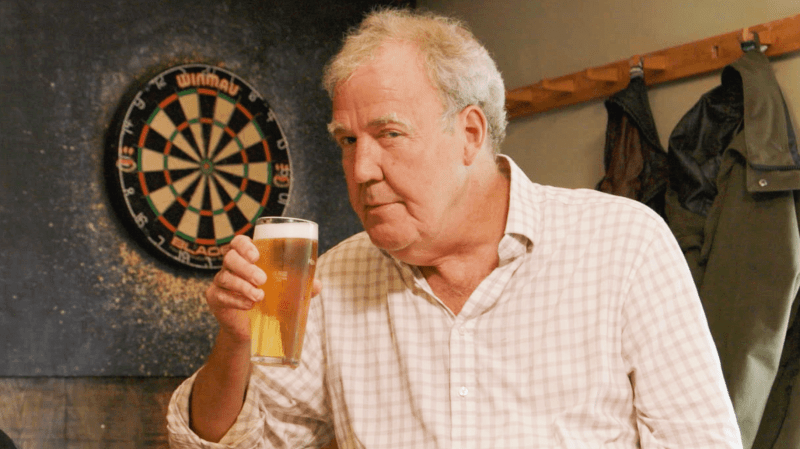
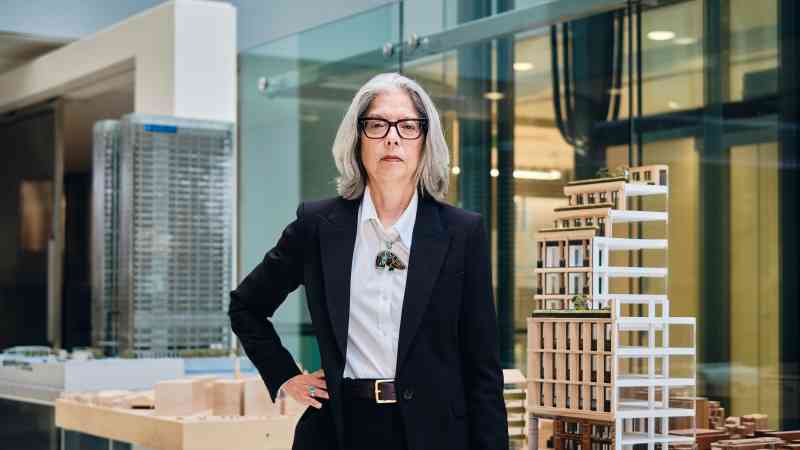
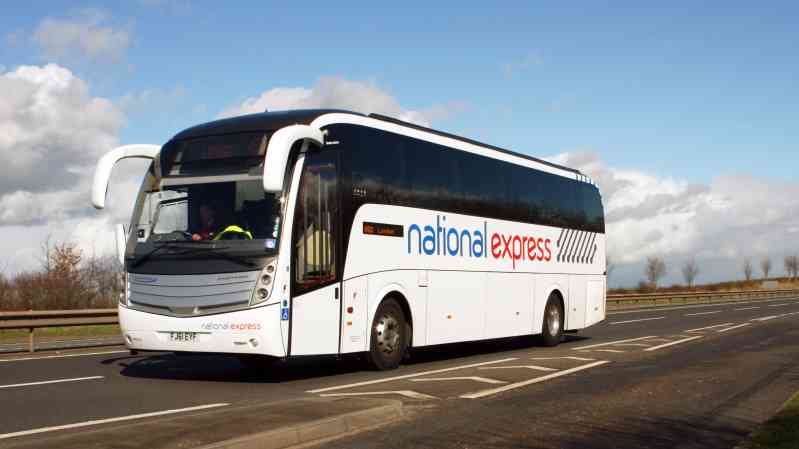
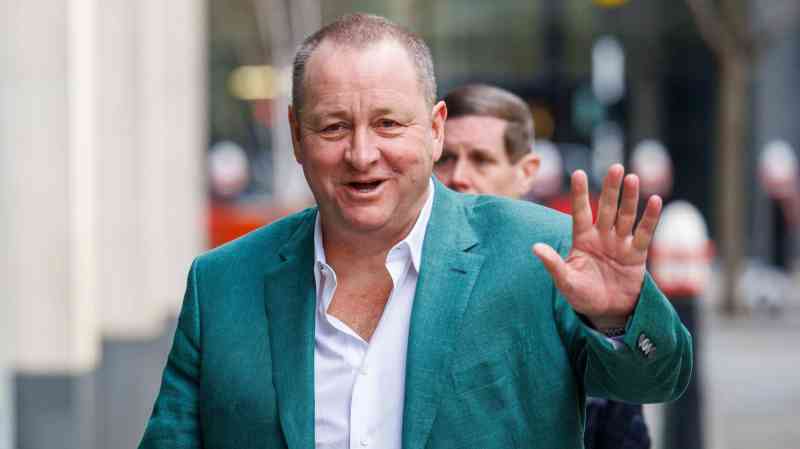
Post Comment